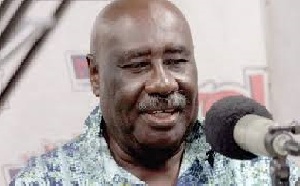 The Committee has attributed it's failure to execute operations on inadequate funding from gov't
The Committee has attributed it's failure to execute operations on inadequate funding from gov't
The Public Interest and Accountability Committee (PIAC) has made a fresh case for an increase in its budgetary allocation to enable it effectively execute its mandate of monitoring and overseeing the use of Ghana’s petroleum revenues.
The Committee has since its formation in 2011 lamented financial constraints saying inadequate funding from government was hampering its operations.
PIAC received GH¢967,000 for 2016 representing 0.31 per cent of that year’s Annual Budget Funding Amount (ABFA) in accordance with the amended Petroleum Revenue Management Act (PRMA).
The Committee said the ABFA disbursement for the year under review translates into approximately 50 per cent of its total expenditure of GH¢1,946,823, with the rest being borne through financial and technical support provided by donors.
Chairman of PIAC, Mr Joseph Winful maintains that “if we want to do what PIAC is supposed to do its going to cost us ten times more than it is costing us now; we don’t have the resources.”
If the Committee wants to adequately address all areas it must employ top class economists, top class chemical engineers and “we have to be supplied with logistics.”
There have been demands from civil society groups for PIAC to be able to move onto the FPSO to examine the metering system to ascertain production levels but Mr Winful said it will take more resources to do that.
The PIAC is set to receive an allocation of GH¢1.9 million for the period of 2017-2019.
The report among others revealed that crude oil production recorded a decline of 13.7 per cent in 2016 despite the fact that Ghana’s second major oil production field, the Tweneboa-Enyenra-Ntomme (TEN) Field came on stream.
The TEN Field came on stream in August 2016 and actually contributed 16 per cent to the annual production, but it dropped from 37.41 million barrels (mmbbls) in 2015 to 32.30mmbbl last year.
The Committee explained that the crude oil production shortfall would have recorded approximately 28 per cent but for the TEN Fields.
Mr Mark Agyemang, Technical Manager at PIAC, who presented the sixth annual report of PIAC, at the launching noted that, actual petroleum receipt in 2016 was $247 million, being 29 per cent lower than the budgeted amount of $348 million and translating to 38 per cent year-on-year decline in annual petroleum revenues when compared to the 2015 receipts of $396 million.
Apart from the Corporate Income Tax (CIT) which exceeded target, none other sources of petroleum revenues achieved set targets, he said.
Mr Agyemang announced that an amount of $98 million, (about GHS 388 million), representing 70 per cent of the net amount $140 million was transferred to the Government of Ghana for further distribution and 42.95 per cent of actual disbursement) was transferred to the ABFA account in 2016.